
4 Facebook Scams You Should Know About
Most of us spend a surprising amount of time on Facebook. We love posting about the exciting things taking place in our lives, we enjoy looking at the photos loved ones share, and we often treat it like an interesting party line that provides a legal way to spy on the lives of others. We seldom stop and think about how dangerous Facebook can be, even though we routinely hear about friends whose accounts have been hacked or who have encountered a Facebook scam.
While you don’t have to completely stop using Facebook, you’ll get more out of the social media giant if you are aware of the most popular Facebook scams and know how to identify and avoid them.
Phishing
Phishing on Facebook is just like other forms of internet phishing, it just takes place on Facebook. The way it works is someone creates a fictitious Facebook account that suggests they offer a service or own a business. When you express interest in the business/service, the mastermind behind the account steals a great deal of your information, including your Facebook password, and uses it for personal gain.
The best way to spot a Facebook phishing scheme is by looking at the website you are directed to. If the URL has anything other than facebook.com on it, it’s a scam and you need to exit it and clear your browsing history right away.
Counterfeit Products Promoted on Facebook Marketplace
Facebook marketplace has become a popular place for people who have cheap products to make a quick buck by promoting them as if the product was name brand or high quality. The best way to avoid falling into this trap is to study the pictures closely and read the seller’s reviews. If the product looks suspicious or there are many bad reviews, move away from that seller and look for something else to purchase.
Bogus Job Scams
Even though Facebook isn’t the first place most people look when they’re hunting for a new job, there are some legit job opportunities posted on the social media site. The problem is that there are also some surprisingly convincing bogus job scams available on Facebook.
The purpose of the bogus job scams is the same as other scams, the person behind the scam wants to extract specific information from you that they can use for their own gain. The best way to protect yourself from a bogus job scam found on Facebook is to never give away any personal information, change your password each time you message the person responsible for the job listing, and carefully research the company that allegedly posted the job.
The Scam Involving Gift Cards
The general rule of thumb is that if something sounds too good to be true, it probably is. That’s certainly the case with many of the gift card offers floating around Facebook. One of the reasons so many people are conned by fake gift card scams is that the person behind the scam hacks an account and makes it appear like the offer is coming from a loved one. And the wording is both persuasive and authentic.
The scam is twofold. Since you’re asked to click a link and provide information about yourself, the person behind the scam collects information from you that they can use to help steal your identity. They also ask you to share the post, making it possible for them to connect with your Facebook friends so they can run the gift card scam on other people.
The best way to avoid getting drawn in by a Facebook scam is to limit your social media actions to dealing with people you know well and always confirm their identity before clicking on any links or secondary accounts.
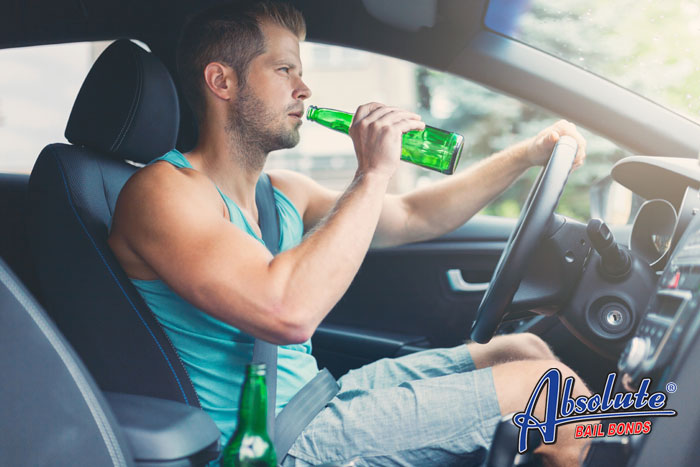
Driving Drunk On Halloween in California
It’s Halloween which means Halloween parties. The high volume of parties means that the police will be out and they will be specifically looking for drivers who are under the influence and behind the wheel. If you are caught driving drunk on Halloween, the consequences will be severe.
Getting pulled over for drunk driving on Halloween in California isn’t the same as being pulled over for speeding. You won’t be let off with a warning. You won’t be issued a simple citation. If the officer suspects you were drinking, the first thing they will do is a breathalyzer test. This is a humbling experience. Don’t assume that even though you’re only close the legal limit (0.08% BAC) that you’ll be free to go. If you’re close, the officer will arrange to have another test done because it can take a little while for the alcohol to really hit your system.
The second thing that will happen is your arrested. While the Halloween party you just left was likely fun spooky, jail is spooky for real. After answering a series of questions, you’ll be fingerprinted and photographed before being put in a jail cell. Don’t assume you can skip any step. In California, you won’t be released to your family until you’ve sobered up. Depending on how drunk you were when you were pulled over and how recently you had your last drink, you could be in the cell for several hours.
The horror doesn’t end after Halloween. Once you’ve sobered up, you’ll realize just how much your life is about to change. Getting arrested was simply the first step. When you decide to drive drunk on Halloween in California, you’ll be charged with a misdemeanor, which will be on your permanent police file.
If your drunk driving on Halloween is the first time you’ve ever been convicted of drunk driving, the maximum amount of time you could be sentenced to jail is six months, and that is only part of what the sentence could be. The judge can also order you to pay a fine of $390-$1,000 dollars (plus additional court costs). You can also have your driving privileges revoked for at as long as a one year.
Avoiding a charge of drunk driving on Halloween in California isn’t difficult. You can either make sure you have a designated driver (or arrange for a ride share/taxi) or you can celebrate the holiday without drinking.
Stay safe and make smart choices this Halloween!

What Happens When You’ve Been Arrested: The Booking Process
It doesn’t matter if you’ve been caught shoplifting, where driving while intoxicated, or have been arrested because evidence suggests that you’ve committed a crime, the entire arrest process starts with you being booked.
The reason for being booked is to create a formal record of your arrest. It’s called booking, because back in the day when jails didn’t have computers, the booking officer entered everything into the big book of the jail’s records and the phrase has stuck, even though everything is currently entered into a computer database.
The amount of time it takes you to be formally booked really depends on how busy the jail is. If it’s a slow day, you could be booked and processed in less than an hour, but if it’s a busy night, it could take hours to complete. If it is a busy night, it’s in your best interest to stay calm and not complain. Getting agitated and rude during the booking process not only looks bad in terms of your case but can also result in additional charges if you get violent and start to rant and rage.
There are specific steps that the booking officer goes through while adding your record to the computer.
Collecting Your Information
One of the first things the booking officer will want to know is your full name, your address, and if you have any identifying features. This is not a good time for you to be sarcastic. Answer their questions quickly, honestly, and calmly. During this stage, you will also be asked to provide emergency contact information.
Taking Your Mug Shot
The next step will likely involve having your mug shot taken. Police rely on mug shorts of a variety of reasons, including:
The booking officer will explain how the mug shot process works. This should only take a few minutes to complete.
Removing Your Personal Items
You can’t bring personal items like belts, wallets, cell phones, and jewelry into the cell when you’re arrested. The booking officer will take these things and log them into their records. When you’re released on bail, you’ll get them back. As hard as it is to pass your personal possessions over, remember that the officer is only doing their job and getting angry will only make the entire situation worse. This is frequently the stage that can take the longest amount of time, especially if you had a great deal on your when you were arrested.
In addition to remaining calm and compliant during the booking process, you also need to not say anything that could potentially be used against you in your case while you’re being booked. The best policy is to not speak unless you’re being asked a direct question that relates specifically to the booking process.
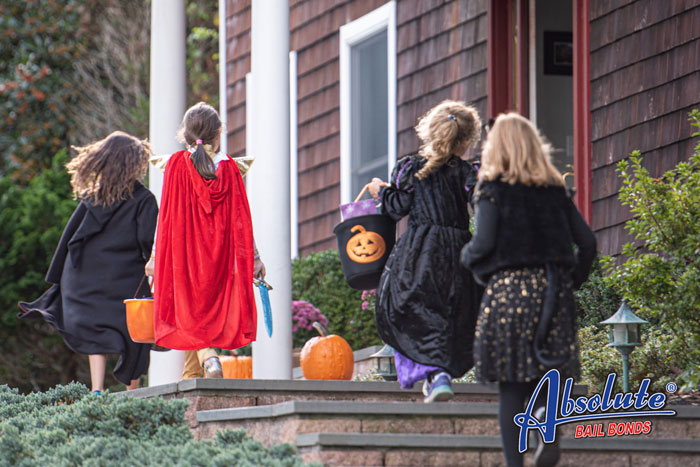
How to Confirm that Candy is Safe After a Fun Night of Trick-or-Treating
It’s easy to understand why parents are fearful. Kids are going door to door and stocking up. Some of the kids will often eat their bounty as they walk from one home to the next. All the kids know is that they are getting a rare, sugary treat. The idea that it could be dangerous doesn’t even cross their minds.
Parents know that while the vast majority of people who answer their door on Halloween night and pass out candy are good and decent people who wouldn’t dream of handing out toxic candy, they also know that that there’s always a chance that their child could cross the path of a dangerous psychopath who doesn’t like kids.
The good news is that there are some steps parents can take to make sure their child only enjoys safe candy this Halloween.
The first thing you need to do is commit yourself to watching your child like a hawk. Don’t assume that just because you told your child that they weren’t allowed to eat the candy until you have a chance to inspect it that they’ll listen. Stay close to your child and make sure they aren’t sneaking treats. This is why it’s good to have a couple of adults accompanying your child while trick-or-treating. The more adult supervision there is, the less likely it is that your child will take advantage of you looking away for a moment and grabbing a piece of candy.
As soon as possible, take a moment to inspect the candy. Commercially wrapped candy bars are great because it’s easy to inspect the packaging for signs of tampering. While broken seals and holes in the package don’t necessarily mean that the person who handed out the candy laced it with something harmful, packaging does occasionally become damaged, the damage does mean you can’t let your child have it.
If the candy’s packaging is damaged, make a note of the address, keep the candy away from your child, and bring the candy to the police for testing. Do not confront the person who passed out the candy.
Another way you can make sure your child enjoys Halloween but doesn’t end up with tainted candy is avoiding the act of going from one strangers door to another. Instead, look for businesses that have collaborated and put together a trunk and treat event for the kids. These events have turned into a wildly popular solution for parents who want minimize the risks connected to trick-or-treating but who also want their kids to enjoy Halloween.
Your third option is to limit your trick-or-treating to the homes of trusted family members and friends who you know will only hand your child candy that’s safe.
Have fun and stay safe this Halloween!

Teens Need to be Smart While Partying This Halloween
Everyone knows that the best parties happen in October. There’s something about the combination of extreme sugar, spookiness, and the strange cheerful zaniness of the season that makes the parties even more memorable. It’s why so many teens spend days learning about what Halloween parties are taking place.
While there’s nothing wrong with going out and having a great time at Halloween parties, teens do need to be smart and make sure they’re not breaking any laws while they have the time of their lives.
The first thing to remember is that parties aren’t a secret like they once were. Thanks to teens using social media sites to plan and discuss parties, it’s easy for the police to use the same social media sites to gain information about the party. If they get the impression the Halloween party is going to have a lot of drug use or underage drinking, it’s reasonable to assume that they could show up at the party site and start making arrests.
Even if the cops don’t learn about the Halloween party via social media, if someone complains about the noise or something else that’s happening, the police will put in an appearance. While they are at the Halloween Party, they will be actively looking for intoxicated teens.
This year, like previous years, the police and courts are not fooling around when it comes to underage drinking. It doesn’t matter that it’s Halloween and that you only had one beer to celebrate. If they catch you drinking, you will face steep consequences that will have an instant impact on your life and your immediate future.
Teen who are caught drinking at Halloween parties will:
- Lose their driving privileges for as long as a year if they’re caught driving with anything more than a .01 blood alcohol level.
- Be fined up to $250 (plus court costs).
- Be required to participate in drug and alcohol counseling.
- Be required to complete 24-32 hours of community service.
If you’re going to a Halloween party, it’s important that you’re aware that even if you’re not actively drinking when the police knock on the door, you could still be in trouble. Just by holding a drink in your hand, you can be charged with being in possession of alcohol while a minor.
If you’re a teenager, the best way to enjoy the holiday without potentially getting into trouble with the law is to stay away from alcohol and any illegal substance.

Driving Without Auto Insurance in California
It’s expected that if you’re going to own and operate a vehicle in California, it’s properly insured. The amount of insurance you have that covers your own car is usually left up to you, but the state requires that you at least carry limited liability insurance so anyone else who is involved in the accident is protected.
The issue of car insurance in California is addressed in Vehicle Code Section 16029.
One of the interesting things about California is that while most drivers have auto insurance, other forms of financial responsibility that are legally acceptable while operating a vehicle in California include:
- A self-insurance certificate that’s issued by the DMV
- A surety bond for $35,000
- Proof of a cash deposit with the DMV of $35,000
If you’re pulled over and can’t present the traffic officer with one of these things, you are driving without insurance.
The first time you’re caught driving without insurance, you’ll receive a citation and have to pay a $100 fine. Additional fees connected to the citation mean your out-of-pocket expenses will be $450, and that’s just for not having insurance. It’s likely that whatever prompted the officer to pull you over, such as running a stop sign or speeding, will also result in a second costly infraction.
The second time you’re caught driving without insurance, the infraction increase to $200-$500, and in some cases, the additional total fees and penalty assessments can add up to as much as $2,500.
The ticket and massive penalties probably won’t be your only problem. Since an uninsured vehicle can’t operate in California, it’s highly likely that the police will have your car impounded. The only way you’ll get it back is if you pay the towing bill and impound fees. Unless you’re planning on having the vehicle towed back to your house, the impound lot will request to see your proof of insurance before the release of your vehicle.
Getting a ticket for not having auto insurance when you’re pulled over is bad, but it’s nothing compared to what happens if you’re in a car accident when you don’t have insurance. Not only will you be issued an expensive ticket, but it’s also highly likely that you’ll be named the defendant of a civil suit. Since you didn’t have any insurance at the time of the accident, if you lose the civil case, you’ll be responsible for paying the entire settlement.
Yes, car insurance is expensive and it can be hard to fit into the monthly budget, but considering the possible consequences, it’s something you should have if you’re driving.
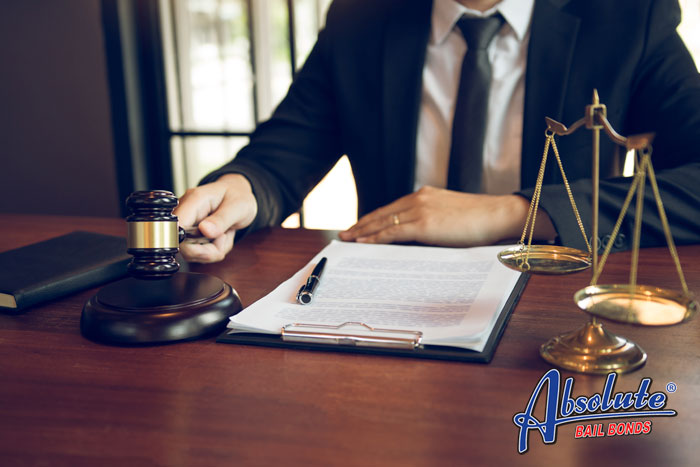
Different Types of Pleas in California
Shortly after you’ve been formally arrested and charged with a crime, you’ll have an arraignment. The arraignment is your first opportunity to tell a judge how you plead.
At a California arraignment, there are three different ways you can plea:
- Guilty
- Not guilty
- No-contest
Guilty
A plea of guilty should be self-explanatory. When you tell the judge that you’re guilty, you admit that you committed the crimes for which you’ve been charged and that you’re ready to face the consequences. While everyone has their own reasons for pleading guilty at the arraignment, one of the main reasons they do so is because they’re hoping that by admitting to their guilt right away, they will get a smaller sentence than if the case went to trial.
Not Guilty
When you plead not guilty, you’re telling the judge that you’re taking no credit for the crimes you’ve been charged with. When you plead not guilty at the arraignment, the case progresses to the next stage and often ends with a jury trial. Many people plead not guilty because they want an opportunity to negotiate with the prosecution and potentially reach a plea agreement that would result in a lesser charge or less severe sentence.
No-Contest
No-contest pleas are a bit confusing. When you plead no contest, you’re telling the judge that you are willing to accept the consequences of the criminal charge. In California, a no-contest plea is handled the same way as a guilty plea. When you plea no-contest, your case will go directly from the arraignment phase to the sentencing phase.
The main reason people decide to plea no-contest in California is that they are worried about civil lawsuits. While it’s true that the California criminal court views a no-contest plea as a guilty plea, the same isn’t true in civil courts. When you plea no-contest, the plaintiff in a civil case can’t say that you ever openly admitted your guilt.
The way you plea at an arraignment has a long-lasting impact on your life, especially if you’re facing felony charges. Considering how serious the situation is, you should never enter any plea without first consulting with a defense attorney.
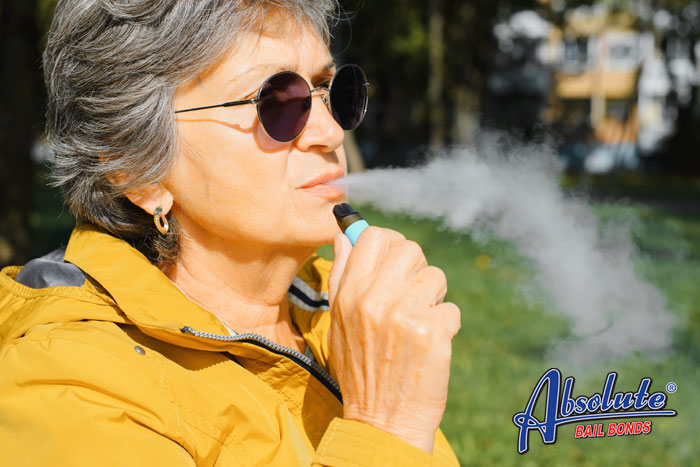
Vaping Laws in California
These days you are almost more likely to see someone vaping than to spot a traditional cigarette smoker. Many of the younger generation have turned to vapes and e-cigs as opposed to traditional cigarettes. There are a few concrete reasons why vaping continues to become a more popular alternative.
- There is less odor connected to vapes
- More flavor choices
- It’s more economical
- Some think it’s safer
- Vaping is considered to be more socially acceptable
- Since there is less mess, vaping is more convenient
- Vaping is more customizable
While there are some key differences between vaping and smoking, California lawmakers treat the two habits the same. The same rules that regulate smoking also regulate vaping.
The Minimum Age for Vaping
No one who has not yet passed their 21st birthday is allowed to smoke or vape in California. The state has a zero-tolerance policy. If you’re caught vaping and you are under 21, you will face legal consequences. Stores are not allowed to sell vapes or vaping products to anyone who can’t show documented proof that they’re at least 21. If you’re caught supplying vapes or vaping products to a minor, you’ll face legal charges.
Retailers aren’t the only ones who will get into trouble if they’re caught selling vaping supplies to a minor in California. Friends, relatives, and even parents aren’t allowed to supply a minor with any vaping products. Doing so is considered to be contributing to the delinquency of a minor. If you’re convicted you could be issued a fine or even sentenced to jail.
You’re Limited to the Locations Where You Can Vape
When e-cig first hit the market, one of the most appealing things about them was that they allowed users with a way to smoke in buildings and other places where smoking was prohibited. That’s no longer the case. You’re not allowed to vape while in a public building, government building, hotel lobby, or on school grounds. Getting caught vaping in a place where the act is prohibited will result in a large fine.
Different California Cities Have Different Rules
If you’re into vaping, you need to pay attention to what city you’re in. Some cities, like Los Angeles and Beverly Hills have far stricter laws than the state. For example, if you’re in one of LA’s unincorporated areas, vaping (and smoking) is strictly prohibited. Beverly Hills completely prohibited smoking and vaping in 2021. The only exception is the three smoking lounges that continue to operate in the city.

Consequences of Shoplifting in California
A surprising number of people have shoplifted during their lifetime. It’s especially common with young children who will often take something from candy racks. Teenagers will also sometimes shoplift because they were dared by their friends or because they are simply looking for a way to rebel.
The problem with shoplifting is that it is against the law. If you’re caught, you face some serious legal consequences.
Shoplifting occurs when you remove something from a store without paying for it. There are times when this happens by accident, such as a pair of earrings getting overlooked by a cashier or a small item getting forgotten in a cart because you were distracted by a grumpy toddler, but most of the time, shoplifting is done deliberately.
In most accidental cases, the store management will review any security tapes they have or talk to the cashier who waited on you. If it’s clear that the item was accidentally taken from the shop, they’ll likely ask you to pay for it and let you go.
However, if they discover that the shoplifting was intentional, they’ll likely file criminal charges.
If you’re arrested as a result of your shoplifting, you’ll be charged with theft. The value of the merchandise you removed from the store determines if you’re charged with petty theft or grand theft. If the total value of merchandise taken during a single shoplifting episode is less than $950 you’ll be charged with petty theft which is a misdemeanor. If you took more than $950 worth of stuff, you’re facing felony grand theft charges.
With both petty and grand theft, you could face possible jail time, though the amount of time you spend incarcerated and the location varies. With a petty theft conviction, the maximum sentence is 6 months in a county jail. The maximum jail time associated with a grand theft conviction is a year.
It isn’t unusual for a judge to look at the circumstances surrounding the shoplifting incident and decide that community service, a fine, restitution, and probation are sufficient sentences.
One of the big things the judge will look at while they are trying to settle on an appropriate sentence is your criminal history. They will be far more willing to entertain a mild sentence that includes nothing more than a small fine and community service if this is your first brush with the law. If you already have a criminal record, especially that record includes other theft charges, they may decide to hit you with the maximum sentence.
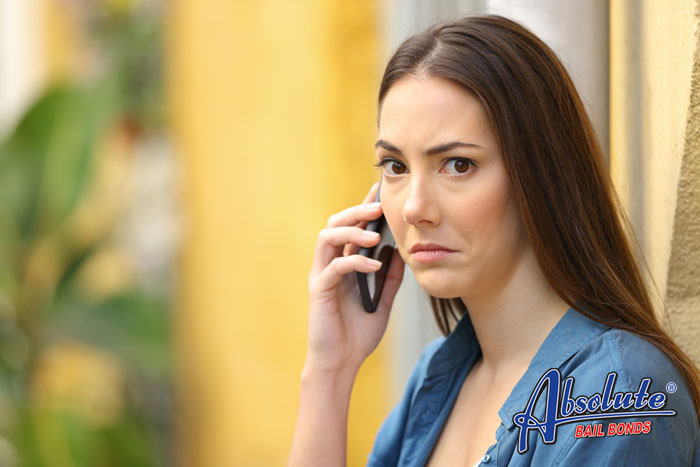
How to Report a Crime
You’ve seen a crime happen. Now you’re in a bind. Are you legally required to report the crime? Who should you report the crime to? How do you even go about reporting a crime? How long do you have to report the crime? It’s amazing how much stress simply being an innocent bystander can cause.
Are You Legally Required to Report a Crime?
The answer to whether you’re legally required to report a crime is both yes and no.
In most cases, the State of California is happy to let you decide whether you should report the crime. Failure to do so probably won’t get you into legal trouble but there are some exceptions.
The exceptions include:
- Rape
- Child Abuse
- Murder
In the case of severe crimes that the state feels you’re legally required to report, failure to do so will result in you being charged with aiding and abetting.
Who Do You Report a Crime To?
When you know about a crime and want to report it, you need to contact your local police station. You can do this in person or via a phone call. People at the police station will provide you with additional information that includes the exact officer you should speak to, what type of details they need to know, and if they’ll have follow-up questions.
In the case of extremely serious crimes, crimes that require immediate medical attention, or crimes that are in progress, you should call 911.
How to Report a Crime
The best way to report a crime is by staying calm, cool, and collected. While reporting the crime stick to just the details, and resist the urge to start sharing your opinions and thoughts about the situation. At this stage, plain facts are the only thing the police require.
Pay attention to the questions the person you’re speaking asks and answer them honestly. If you don’t know the answer, make that clear.
How Long Should You Wait to Report a Crime
The general rule of thumb is that you should report a crime as quickly as possible. Not only does this alert the authorities and allow them to take immediate and appropriate action, but it also allows you to share the details of the case while your memory is still sharp. Waiting even a few hours can drastically impact your ability to recall exactly what you saw and experienced.

